Presence-Event Berlin
The Garden: and the Landing:Stage at the University:Future Festival 2025 in Berlin were characterised by good futures for (digital) higher education. In addition to concrete problems and practical solutions, we discussed fundamental visions, narratives and values for shaping a future-proof academic education.
Please note: The programme of the face-to-face event in Berlin will be mainly in German.

Dates: Garden: and Landing:Stage offered a two-day programme on 13 & 14 May. On the first day, the programme started at 09:00 and ends at 18:15. On day two, the programme also started at 09:00 and ran until 18:30. This was followed by an evening get-together. On the third day of the festival, the programme continued purely digitally.
Location: Festsaal Kreuzberg, Am Flutgraben 2, 12435 Berlin.
How to get there: Festsaal Kreuzberg can be reached by underground lines U1 and U3 via Görlitzer Bahnhof station or by underground line U8 via Schönleinstraße station, from where it is about a ten-minute walk. If you are travelling by car, it is advisable to look for parking in the surrounding area, as the Festsaal itself does not offer parking spaces and these are generally limited in the area.
Keynotes
Stage programme
Experience:Space
Evening programme
On-Demand
Keynotes (selection)

Julia Freudenberg
CEO Hacker School

Sven Schütt
CEO IU Group

Christoph Biemann
Television producer WDR
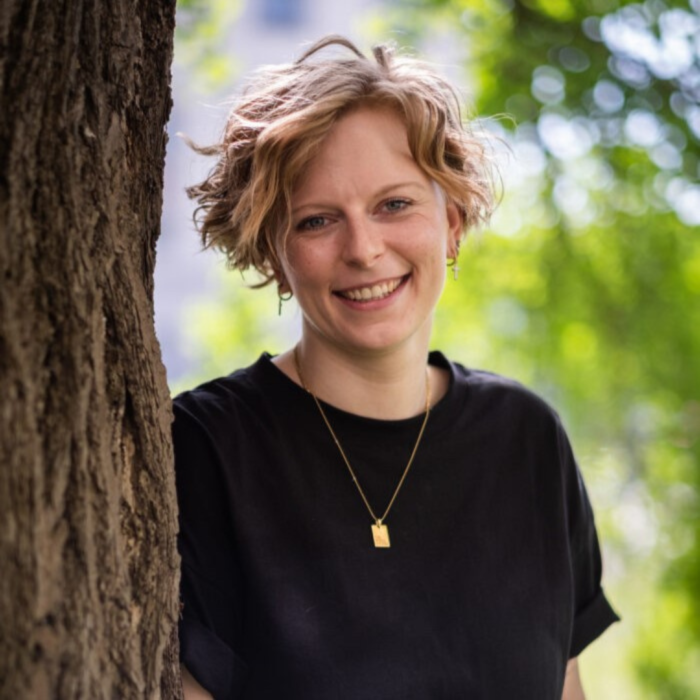
Lisa Niendorf
Professor, Content Creator
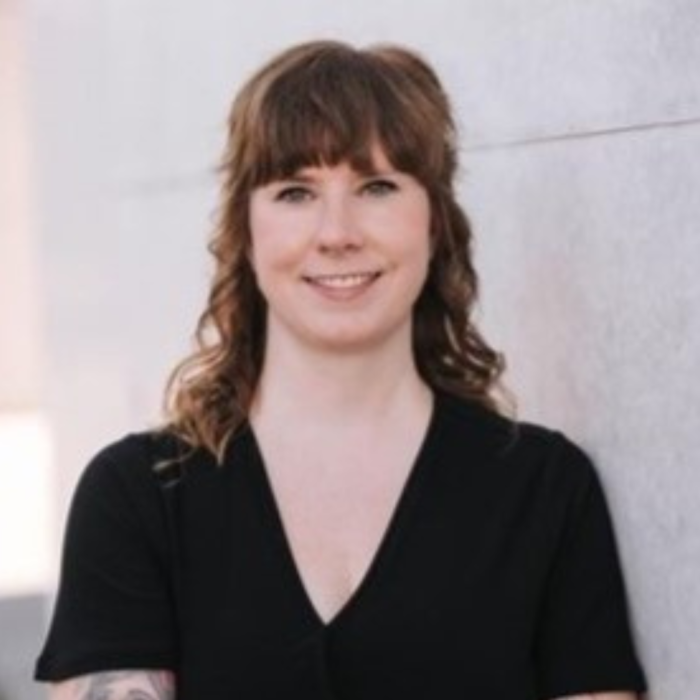
Carina Schroeder
Journalist, author,
Podcaster ‘Understanding AI’
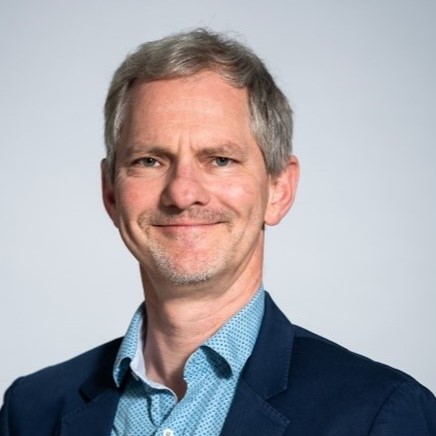
Ralf Krauter
Reporter, editor,
Podcaster ‘Understanding AI’
Here you will find all keynote speakers of the Garden:Stage 2025.
Stage programme
The Berlin presence event once again offered a varied programme on two stages. On the Garden:Stage, we welcomed keynote:speakers such as Julia Freudenberg, Sven Schütt, Christoph Biemann, Lisa Niendorf and the podcast KI-verstehen.
The second stage, Landing:Stage 2025, taked place for the first time with a live audience on site. Here, important topics combined with exciting methods.
Experience:Space
Strange Faces
This interactive installation played with identity, perception and imagination. What happened when our own “STRANGE_FACES is an interactive mirror installation, that played with the faces of the users and their perception of each other. The faces of the audience were tracked, so that one person always sees their own face, but several people always see a stranger. This gave a new perspective on the perception of strangers.
– Thomas Guggenberger
A fragment is never just a piece
A Fragment is Never Just a Piece reflects the tension between control and boundlessness in dealing with nature and technology – from greenhouses to digital landscapes. At the center were split, folded hexagons, a form that symbolizes stability and is found in both nature and technology. The reflective surface of the sculpture changed depending on the perspective and plays with perception and space.
– Laura Roth
Visual Literacy. I see something you don’t see!
The interactive exhibition ”Visual Literacy” at Salzburg University of Applied Sciences made it possible to experience the limits of our visual understanding. It offered visitors the opportunity to test and reflected on their visual literacy and to deal critically with images. Visual literacy was derived from the knowledge of media practitioners: What has a persuasive effect can be recognized and questioned. In this way, the exhibition strengthened media literacy and promotes conscious participation in visual culture.
– Viktoria Kirjuchina, Johanna Wicht, Kathrin Dahmen, Sophie Hennerbichler, Mahshad Rezaeian
‘The controllable eye’
How can physical objects be transmitted in hybrid scenarios? Can I view an object from different perspectives, even if I am not present? Where is the “controllable eye” located?
– Andreas Wolter, Jens Weber
Jajaja, neeneeneee – talking about monkeys
A friendly monkey, made from a sock, observed us attentively, followed our gestures and communicates with a monkey counterpart on the monitor: the installation “Jajaja, neeneeneee – über Affen reden” created a spontaneous, heart-warming connection between humans and stuffed monkeys. Charmingly inviting, this interaction worked across cultures and generations and at the same time poses questions about overcoming distance: what makes us feel closeness?
– Anne Brannys, Jan M. Sieber
Machine Sensing – Virtualised Em/bod/ie/ments
Interactive media interfaces used Kinect and TouchDesigner, enabled live-recorded gestures to migrate into generative, evolved forms via human and machine interaction and Generative AI: challenging traditional notions of embodiment and knowledge production.
– Rinah Wuzella, Robert Seidel
Growing together: Participatory education on the move
The roadshow “Growing Together: Participatory Education on the Move” from the “Art and Design” community of the ‘D2C2’ project brings the “Students as Partners” approached to (art and design) universities. With the mobile pop-up format “Learning Garden” and specialized carts, it promoted interactive exchange, practical experience and innovative teaching methods. The aim was to break up traditional structures and redesign education together – in a sustainable and inspiring way.
– Katharina Bellinger
Factory facades Change of perspective and interdependence
The installation shed light on the shifting of perspectives and the breaking up of points of view with a focus on post-colonial and post-industrial culture. The interweaving of architecture and society was shown using videos and layers of fabric, and the interactions between the digital and real world were reflected upon.
– Luna Emembolu
Intelligent Collaboration Desk (ICD)
The ICD was a hybrid workbench on which physical notes and sketches created during an idea generation process can be digitised. Users supplemented their physical notes with action cards. A camera captured the scene and an AI transforms the ideas, e.g. into an inspiring design fiction. This created a hybrid approach to generative AI that goes beyond text and voice input and enabled new forms of virtual and physical teamwork.
– Julian Bauch
Let’s imagine: Future Learning Spaces!
Let’s imagine: Future Learning Spaces! The virtual reality application fuelsME consisted of innovative teaching and learning spaces. The session invited you to take a tour of these ‘Future Learning Spaces’ developed in the joint project of the same name, including a virtual EU Parliament for VR-supported simulation games, an immersive VR creative space with AI technology for collaborative work, a virtual excursion in a national park and a VR room developed by students for physics experiments.
– Ulrike Mascher, Wolfgang Brabänder, David Fernes, Andreas Fuchs
E,丂oξ – Überwacht für 3,50: A queer feminist intervention against the price of control
‘Dear passengers, due to the prevailing obsession with control and ‘normality’, we were forced to suspend regular operations. The narrative of ‘functionality’ was suspended indefinitely. ‘ E,丂oξ was an art installation that put the glitch centre stage. Inspired by Legacy Russell’s concept of the ‘glitched body’ and the everyday experience of public transport, we used the underground as a metaphor for standardised social spaces.
– Svenja Hoffeller
Friendly Fire
Friendly Fire was an interactive digital installation that dealt with social media, interpersonal closeness and consent and involved viewers.
– Henrik Mielicke, Henrik Bergerbusch
Touch the Untouchable: XR as a medium for university teaching
Have universities already arrived in the world of virtual reality? What opportunities and challenges does extended reality (XR) bring to the university environment and what role does it play in shaping the teaching/learning landscapes of tomorrow? Immerse yourself in applications from the Realitaetenlabor (TU Berlin) that approached these questions by visualising the otherwise untouchable and discussd with us how XR can be successfully integrated into higher education.
– Jakob J. Korbel, Celia Ruppert, Anja Wipper, Doreen Gropmann
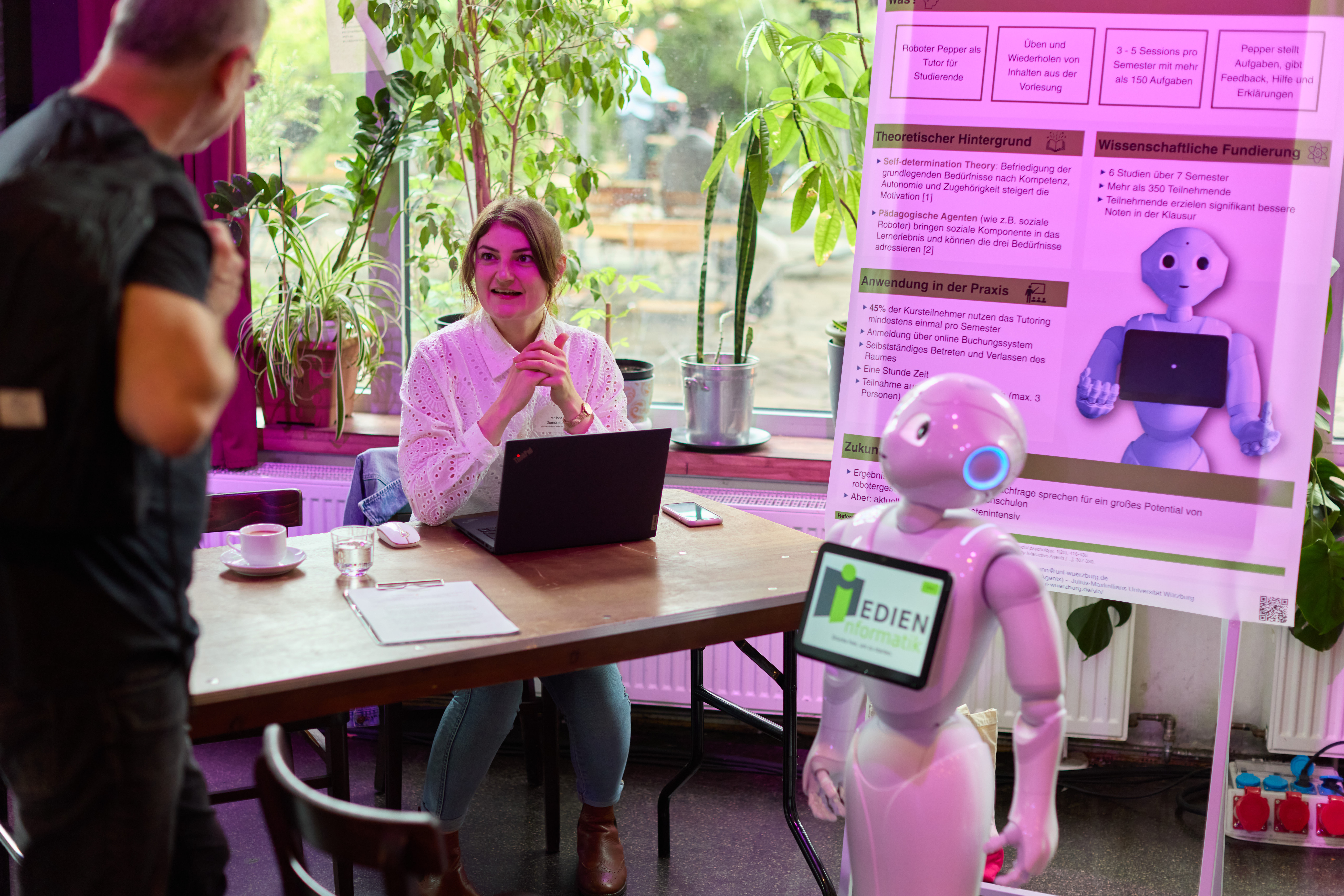
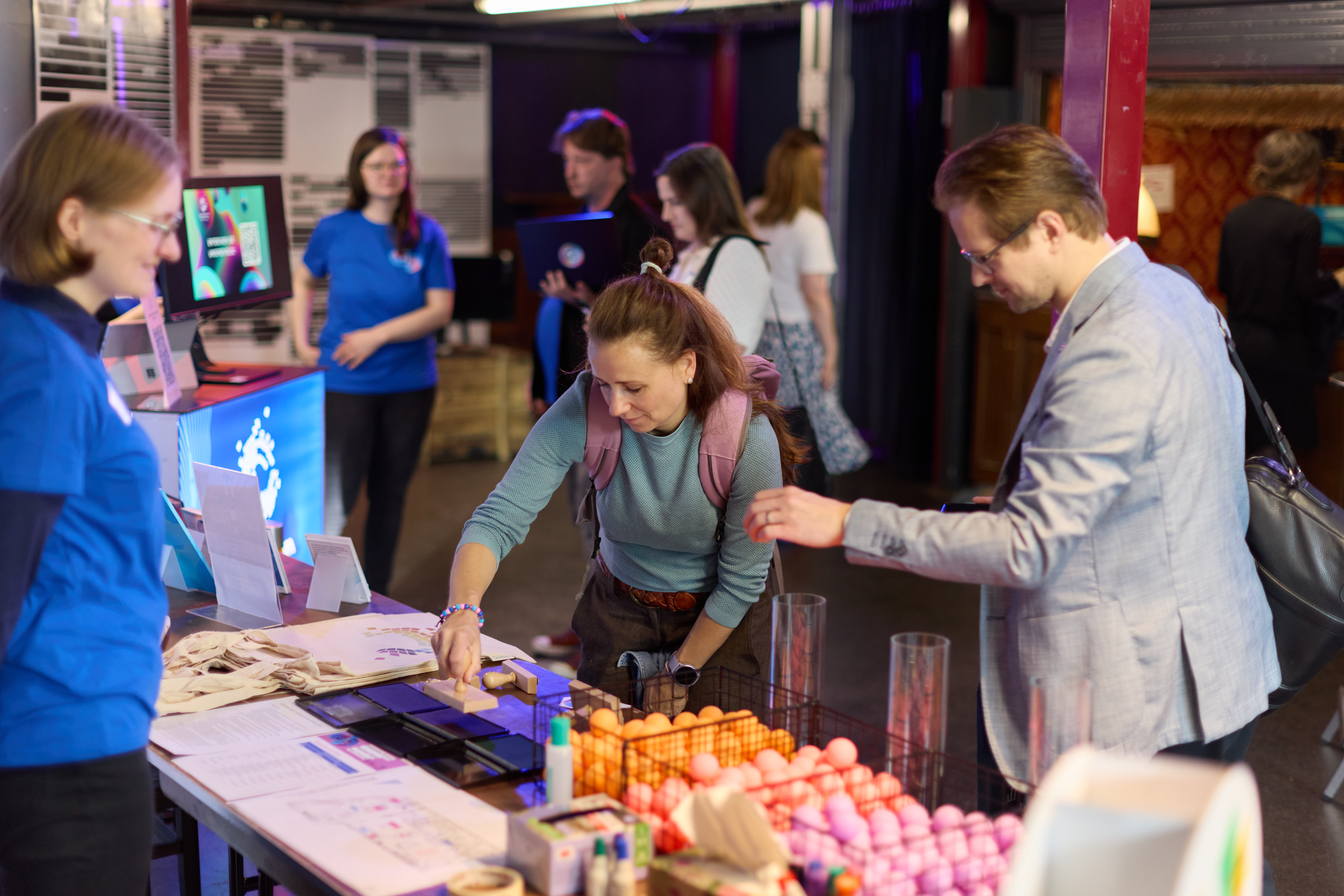
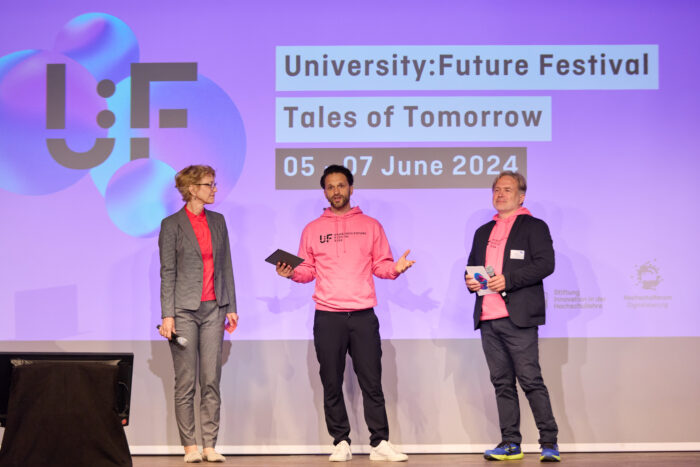
Evening programme
At the end of the second day of the event (14 May 2025), we invited all day guests to an evening get-together in Berlin. In a relaxed atmosphere, with refreshing drinks and musical accompaniment, we created an informal setting for personal dialogue, stimulated discussions and new encounters.
On-Demand
You will find videos of the event in Berlin after the U:FF 25 on the YouTube channel of the Hochschulforum Digitalisierung.

